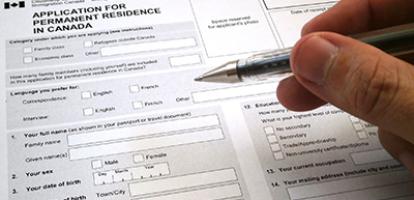Nicholas Dahir is a research assistant at the C.D. Howe Institute. William Robson is chief executive of the C.D. Howe Institute.
Among the most grating and persistent failings of our governments is that they are too slow. Too slow building things, too slow issuing permits and passports, too slow processing taxes, too slow even answering questions.
Less obvious in our daily lives, but troubling on a deeper level, is how late Canada’s federal, provincial and territorial governments are in presenting their budgets and public accounts. The C.D. Howe Institute recently released its annual report card on the clarity, reliability and timeliness of these documents. Our findings on timeliness alone reveal major problems with how our governments manage our money.
The public accounts that governments issue are critical tools for elected representatives and citizens in holding them to account. The public accounts contain the financial statements with the definitive record of revenues, expenses and the surplus or deficit during a fiscal year, and provide key information about a government’s capacity to deliver services in the future.
Senior governments’ fiscal years end on March 31. It is now early November. More than seven months after the 2022-23 fiscal year ended, two provinces – Prince Edward Island and Quebec – and all the territories have still not released their public accounts. Among the governments that have, four – the federal government, Nova Scotia, New Brunswick and Manitoba – only did so in September. Newfoundland and Labrador only did so last week.
That is troubling for many reasons. Not least being that late statements get less attention. They feel like old news. That reduces the incentive for legislators – whose job it is to ensure that governments are stewarding our money effectively – to review them.
This means key questions, such as why revenues didn’t match budget projections (they almost never do) or why governments spent more than they said they would (they almost always do) don’t get asked – or, if asked, don’t get answered. Moreover, slow release reflects slow organization of the information, which means governments lack the numbers that would help them project revenue and spending more accurately in the following year’s budget.
Many non-government organizations produce their financial reports much faster. Late financial statements are a red flag for auditors, for donors to charities and for investors in companies. The Ontario Securities Commission requires TMX-listed companies to file their annual results no later than three months after year-end – a deadline the OSC itself also achieves. All Canada’s senior governments should do the same.
Late government budgets, and the estimates that accompany them, are no less serious. Budgets are statements of fiscal priorities at the beginning of the fiscal year, and budget votes are votes of confidence on which governments stand or fall. The estimates detail spending that requires specific legislative approval – oversight that is fundamental to democratic government.
Yet governments sometimes present budgets after April 1, when the fiscal year has already begun. PEI did not release its 2023-24 budget until late May.
And while the other senior governments presented their 2023-24 budgets before March 31, half of them – the federal government, Newfoundland and Labrador, Nova Scotia, New Brunswick, Quebec, Ontario and Saskatchewan – beat that deadline by less than two weeks. That jams legislators, who cannot possibly absorb the information, ask questions or make informed judgments in such a short time. When they vote on estimates after the fiscal year has begun, they are not doing their job.
As the C.D. Howe Institute report card details, the timeliness of budgets and financial statements was better in the most recent two years. But that is not saying much: The 2020-21 fiscal year was awful.
Only nine of the 14 senior governments presented budgets before April 1 in 2020, and only seven – Alberta and Saskatchewan among them – released their public accounts before October. The federal government presented no budget in fiscal 2020-21 – an unprecedented failure – and released its public accounts in late November, revising its financial statements after the federal Auditor-General had already signed them – another terrible precedent.
It’s time for the remaining senior governments to release their public accounts for the 2022-23 fiscal year. They must do better in the future. Alberta and Saskatchewan consistently release their public accounts within three months of year-end. If they can do it, all governments can.
Governments should also accelerate their preparations for their 2024-25 budgets. For years, New Brunswick presented its budgets and estimates in January. That kind of respect for legislators and the parliamentary process should be universal.
Slow production of budgets and public accounts is no more acceptable from governments than is the slow provision of services and information. If elected representatives do not get the information they need in a timely way, the ideal of legislative control of public money becomes a fiction.
Published in the Globe and Mail





